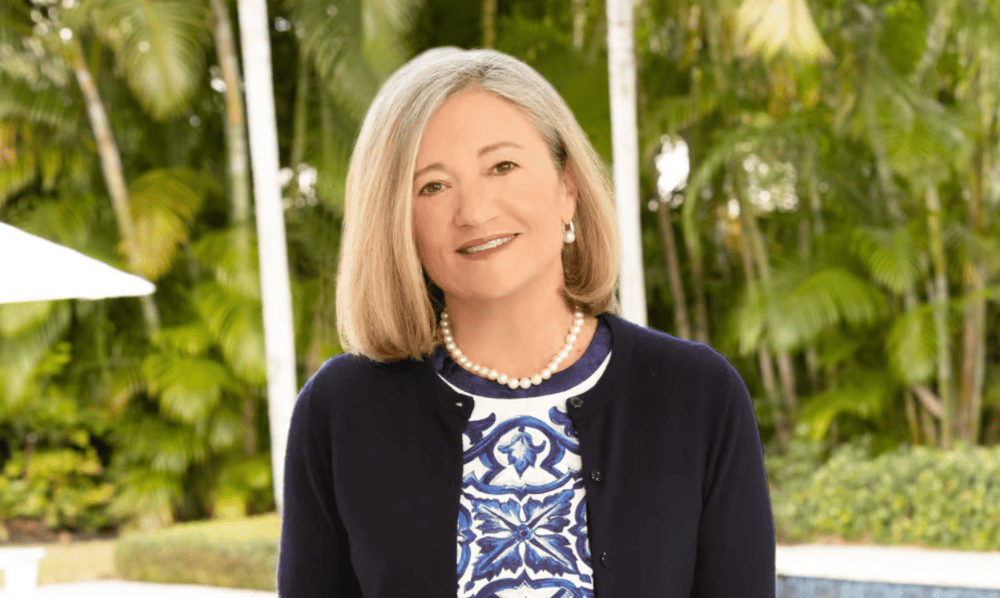Fannie Mae now says mortgage rates will land higher than first expected by the end of the year – but don't rule out an eventual slide towards the low sixes yet

Mortgage rates look set to finish the year higher than many expected, with Fannie Mae now projecting the 30-year fixed average will sit at 6.5% by the end of 2025 – up from 6.1% in its earlier forecast.
That adjustment arrived amid continuing uncertainty about the outlook for the national economy, with little clarity over how the ongoing global trade war will impact inflation and the labor market for the remainder of the year.
Recent turmoil in the Middle East has also heightened the risk of a spike in global oil prices, particularly following Iran’s threat to shut down the Strait of Hormuz – through which about a quarter of seaborne oil trade passes. That could put further upward pressure on rates.
“If oil prices go through the roof, so will mortgage rates,” Melissa Cohn (pictured top), regional vice president of William Raveis Mortgage, told Mortgage Professional America. “Remember – the bond markets react to anything that’s inflationary.
“The Fed basically reacts to the current situation but [also] historical data. The bond market, which really drives mortgage rates, has a kneejerk reaction to what’s going on in the world and what’s going on in the economy.”
Still, Cohn expects mortgage rates to avoid a significant surge between now and the end of the summer, with borrowing costs likely to see their usual fluctuations upwards and back down.
“It’s going to be more of the same for the rate market,” she said. “We’ll catch little phases of rates dropping an eighth, a quarter, or then there’ll be some inflationary data and rates will go up.
“I think that we’re going to be [steady] through the summer until we see what kind of inflationary impact the tariffs in their final form will do to the economy.”
Long-term outlook solid despite tariff turmoil
Few analysts are certain about where rates will ultimately land, especially because it’s still unclear if tariffs will ease in the months ahead or whether the Trump administration intends to ramp up its levies against trading partners.
But Fannie Mae is optimistic about the long-term prospects for the US economy and housing market, even if it now believes home sales across the country will come in slightly lower than it had first expected.
Initially, Fannie had expected gross domestic product (GDP) for 2025 to come in at 0.7% – but it now forecasts 1.4% growth for the year, and 2.2% for 2026 (up from an earlier forecast of 2%).
Mortgage rates are expected to fall to 6.1% by the end of next year, while Fannie’s consumer price index (CPI) expectations have ticked lower despite the continuing concern of Federal Reserve chair Jerome Powell about a potential upside surprise.
Federal Reserve Chair Jerome H. Powell defended the central bank's cautious interest rate approach to lawmakers. He stated the Federal Reserve will wait for more data before easing borrowing costs.https://t.co/rWC9r41PaO
— Mortgage Professional America Magazine (@MPAMagazineUS) June 24, 2025
Fannie says inflation will likely hit 3.2% by the final quarter of this year compared with its earlier forecast of 3.5%, with the core CPI set to hit 3.3% – down from an earlier expectation of 3.8%.
Don't rule out eventual lower rates just yet
Despite the continuing turbulence, Cohn said it wouldn’t be a surprise to see rates eventually start to tick closer to the 6% mark, although the tariff outlook will be a key factor in that trend.
“If you think about it, at the beginning of the year we got very close to 6%,” she said. “But I think a lot of it’s going to depend on tariffs. If tariffs end up being higher and more damaging to inflation, then I we’re not going to see 6%.
“But I think that if numbers were to remain as expected, then we could certainly get back to 6%. Things change in the moment. Rates are very reactionary to what’s going on in the markets day to day.”
For now, though, economic volatility is keeping plenty of would-be homebuyers on the sidelines, and Cohn sees little chance of that changing unless there’s positive news on the trade front.
A housing and mortgage market resurgence, she suggested, would likely depend on a détente with trading partners and news of some trade deals to brighten the economic picture.
“The market remains clouded because there’s still too much uncertainty out there,” she said. “It’s hard to buy a new home not knowing that your job is going to be secure, not knowing you can’t buy a piece of land and want to build a house, not knowing how much it’s going to cost you to build a new home. There are just too many uncertainties.”
Stay updated with the freshest mortgage news. Get exclusive interviews, breaking news, and industry events in your inbox, and always be the first to know by subscribing to our FREE daily newsletter.



